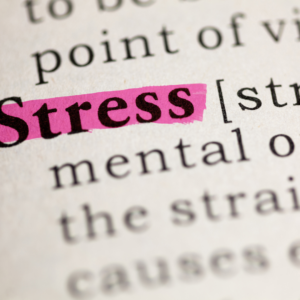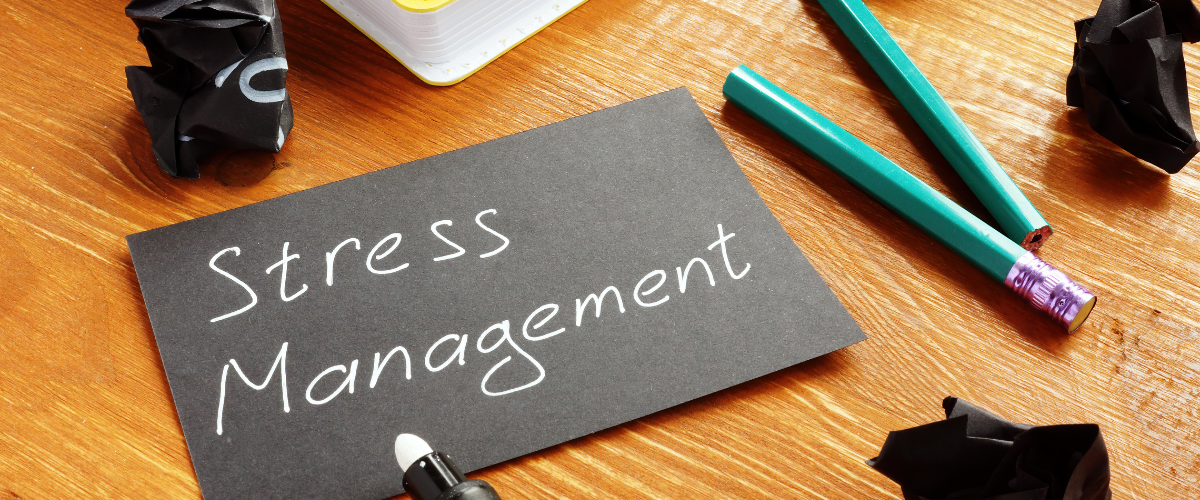The word stress brings up many different ideas and thoughts. Just hearing the word may bring up negative emotions in some. Healthline.com defines stress “as the feeling of being overwhelmed or unable to cope with mental or emotional pressure. ” Everyone experiences stressors in life. Sometimes stress is caused by exciting events that are taking place. Other times stress is caused by things that are frustrating and painful. Our reactions to stress can impact our physical and mental health.

What is Stress?
Stress is inevitable. Sometimes we are able to handle stressful situations well. However, at other times the situation can seem too much to bear. That is when anxiety and depression can present themselves along with a host of other symptoms. If this resonates with you, know that you are not alone. According to an article from the Mayo clinic in 2022, more than 40 million people in the U.S. are affected by these illnesses. That number is increasing and does not account for the many who have not sought treatment. There are also statistics that show that more than 40 percent of women have physical symptoms directly caused by the effects of stress.
Effects of Stress
Anxiety and depression are two major symptoms that arise when stress is not handled well, but there are other issues that are often overlooked. Some of the other symptoms that may present themselves due to stress are headaches, sleep disturbances, GI issues, generalized aches and pains, and feelings of frustration and overwhelm. According to Dr. Aviva Romm, overdrive of our body’s stress response is caused by “anything that overwhelms your body’s capacity to respond effectively to the challenges you’re exposed to.” Living in a chronic state of stress, food sensitivity, gut imbalances, environmental factors, and immune disfunction can all place the body in a state of overwhelm and impact both mental and physical health along with the way daily pressure is handled.
Stress Management Tools
It is vital to have tools that can be utilized when stressful situations arise. If coping methods are used that are effective, deep anxiety and depression are less likely to occur. Some of the most common practices for dealing with stress are deep breathing exercises, meditation, and yoga. Other strategies that can help involve lifestyle changes. Some of these tactics are daily movement, diet changes, supplements, and implementing a regular sleep schedule and time for self-care.
Get Help when Needed
The list of tools provided above is very basic. There are times when lifestyle changes are not enough to keep anxiety and depression at bay. In those instances, speaking with a counselor or a physician can provide further help and tools to utilize. The key is to listen to your body and do not be afraid to ask for help. To quote Dr. Romm, “You are worth taking care of.”
Tools to Thrive
Our bodies and minds are interconnected, so the health of one impacts the health of the other. My hope is that everyone finds the tools that help them thrive. There are a few things being offered here at Sustainable Coaching that may help you find the tools that work for you.
Challenge, Course, and Freebie
- A 10-day stress relief challenge is being hosted in the Sustainable Transformation Challenge Community on Facebook beginning February 20. During this free challenge, participants will receive daily inspiration, tips, and stress management activities to try.
- If you choose to dive deeper, you can purchase the Stress Relief Strategies Course to gain further insight and fill your toolbox with the right tools that work for you.
- I’m also offering a 30 day calendar of stress management ideas on the freebies page. This page is password protected for those on our mailing list, so sign up below for access if you have not already. You will receive an email with the password.
Subscribe for our Newsletter and Access to Freebies
Sign up to get access to our free tools, worksheets, and updates.Booking Provided by Healthie





